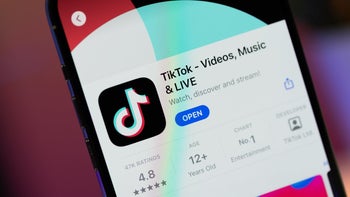This book inspired the Australian ban on social media for kids under 16

By now, you've probably heard that Australia has approved an absolute social media ban for kids under 16 – but do you know what inspired the prohibition?
Well, it was a book – a 2024 bestseller by a social psychologist, to be precise.
It's called The Anxious Generation from the well-known author Jonathan Haidt. In it, he's critiquing social media, to put it mildly. If you've spent some time on YouTube and you've clicked around some videos on topics like social psychology, morality, or moral emotions – well, there's a pretty good chance you've already "met" Haidt.
What does this have to do with Australia, of all places?
Well, the catalyst came from a personal moment involving South Australia Premier Peter Malinauskas, Reuters reports. His wife, after reading the aforementioned The Anxious Generation – urged him to take action. Malinauskas recalled her insistence that he both read the book and address the issue. The Premier admitted he hadn’t expected the idea to gain momentum so quickly.
Rodrigo Praino, a politics professor at Flinders University, noted that the issue gained traction because national leaders recognized it as a growing global concern, best addressed through unified legislation.
The movement gained additional impetus in May when Malinauskas announced his state plan. Shortly after, Prime Minister Anthony Albanese pledged to enact federal legislation by year’s end, citing the growing desire of parents to see children spend less time online and more time engaged in physical activities. This policy move aligned with trends in other regions, such as France and Florida, where similar age-based restrictions were introduced.
The national ban, introduced to parliament in November, differed from its state-level counterpart by eliminating parental discretion. Albanese’s government argued that this approach relieved parents from the burden of monitoring compliance.
The legislation faced criticism from social media companies, which were held entirely responsible for enforcement and faced hefty fines for non-compliance. TikTok expressed concerns that the rushed policy might inadvertently drive young users to riskier online spaces, for example.
Criticism also came from political quarters. The Greens labeled the law hasty and unfair, while others opposed it over fears of government overreach and potential surveillance. Personally, I love the idea, it's just that… TV is not a much better alternative for kids. Also, what is the government going to do about kids who don't use social media, but instead game for 18 hours a day on their phones? Lastly, should the government do anything about it in the first place? Again, the keyword here is "overreach"...
Despite these controversial questions, the legislation passed on the final parliamentary day of the year, with implementation set for late 2025.
Robert French, a former High Court judge, contributed to shaping the law after being commissioned by Malinauskas to explore the feasibility of a state-based age restriction. French commended the final national approach, which incorporated several of his recommendations, including holding platforms accountable for preventing underage users. He described the resulting legislation as a sensible framework to address a pressing issue.
Well, it was a book – a 2024 bestseller by a social psychologist, to be precise.
It's called The Anxious Generation from the well-known author Jonathan Haidt. In it, he's critiquing social media, to put it mildly. If you've spent some time on YouTube and you've clicked around some videos on topics like social psychology, morality, or moral emotions – well, there's a pretty good chance you've already "met" Haidt.
Well, the catalyst came from a personal moment involving South Australia Premier Peter Malinauskas, Reuters reports. His wife, after reading the aforementioned The Anxious Generation – urged him to take action. Malinauskas recalled her insistence that he both read the book and address the issue. The Premier admitted he hadn’t expected the idea to gain momentum so quickly.
Malinauskas’s initiative to limit youth access to social media in South Australia, a state accounting for just 7% of Australia’s population, escalated within six months to a national policy, underscoring widespread public concern. A recent survey showed 77% of Australians supported the under-16 social media ban, up significantly from 61% before the government’s official announcement.
Rodrigo Praino, a politics professor at Flinders University, noted that the issue gained traction because national leaders recognized it as a growing global concern, best addressed through unified legislation.
The movement gained additional impetus in May when Malinauskas announced his state plan. Shortly after, Prime Minister Anthony Albanese pledged to enact federal legislation by year’s end, citing the growing desire of parents to see children spend less time online and more time engaged in physical activities. This policy move aligned with trends in other regions, such as France and Florida, where similar age-based restrictions were introduced.
The legislation faced criticism from social media companies, which were held entirely responsible for enforcement and faced hefty fines for non-compliance. TikTok expressed concerns that the rushed policy might inadvertently drive young users to riskier online spaces, for example.
Criticism also came from political quarters. The Greens labeled the law hasty and unfair, while others opposed it over fears of government overreach and potential surveillance. Personally, I love the idea, it's just that… TV is not a much better alternative for kids. Also, what is the government going to do about kids who don't use social media, but instead game for 18 hours a day on their phones? Lastly, should the government do anything about it in the first place? Again, the keyword here is "overreach"...
Robert French, a former High Court judge, contributed to shaping the law after being commissioned by Malinauskas to explore the feasibility of a state-based age restriction. French commended the final national approach, which incorporated several of his recommendations, including holding platforms accountable for preventing underage users. He described the resulting legislation as a sensible framework to address a pressing issue.














Things that are NOT allowed: